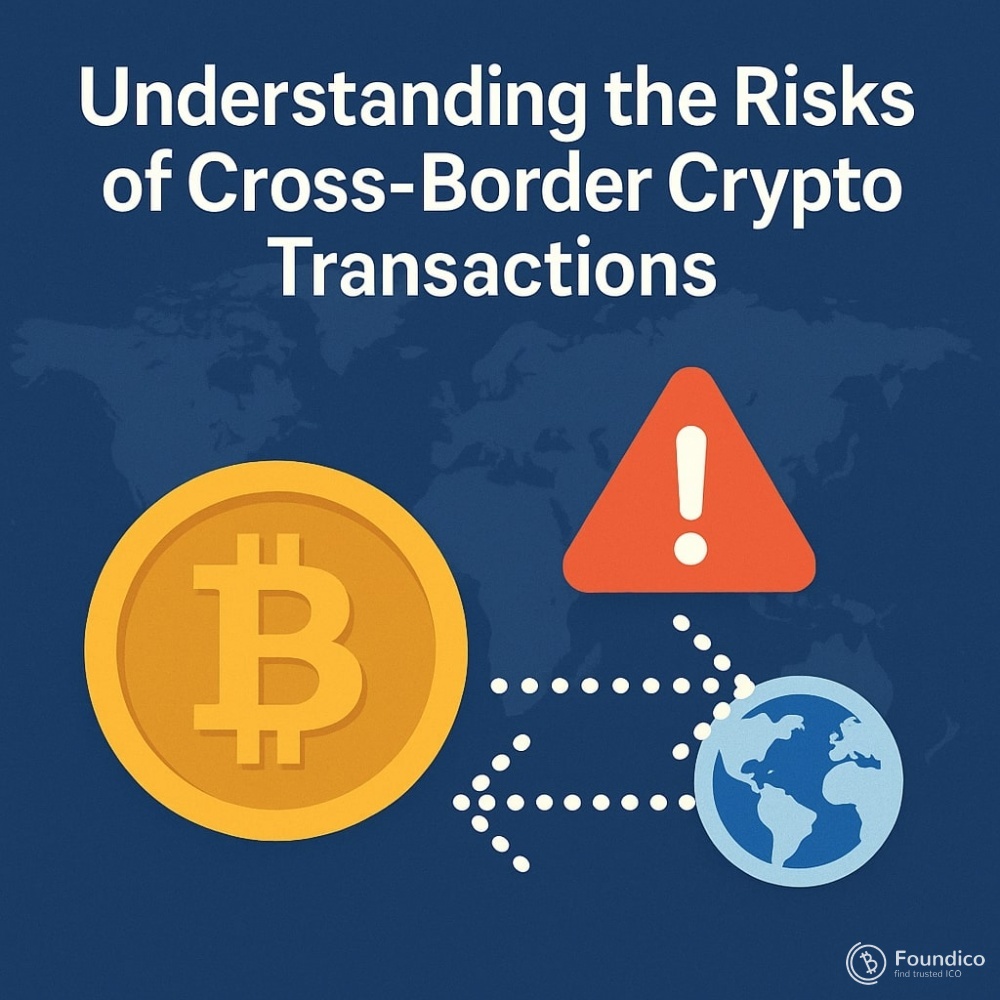Understanding the Risks of Cross-Border Crypto Transactions

The rise of cryptocurrencies has revolutionized the way individuals and businesses conduct financial transactions, particularly on a global scale. Unlike traditional banking systems, cryptocurrencies enable near-instant, decentralized cross-border transactions that bypass intermediaries and offer unprecedented accessibility. However, with these advantages come significant risks and challenges that every participant must understand to navigate the landscape safely and effectively.
The Appeal of Cross-Border Crypto Transactions
Cross-border crypto transactions have become popular for several reasons:
-
Speed: Unlike traditional bank transfers that can take days, crypto transactions often settle within minutes.
-
Lower Fees: Cryptocurrency networks can reduce or eliminate many fees associated with currency conversion and banking intermediaries.
-
Accessibility: Crypto can provide financial services to the unbanked or those in regions with limited banking infrastructure.
-
Decentralization: Transactions are recorded on distributed ledgers, reducing dependence on centralized authorities.
Despite these advantages, cross-border crypto transactions are fraught with complexities that expose users to multiple risks.
Key Risks in Cross-Border Crypto Transactions
1. Regulatory and Legal Uncertainty
Cryptocurrency regulations vary widely from country to country, creating a patchwork of legal frameworks. What is perfectly legal and regulated in one jurisdiction might be restricted, heavily taxed, or outright banned in another. This inconsistency creates risks such as:
-
Asset freezing or confiscation: Some countries have seized crypto assets during regulatory crackdowns.
-
Legal liability: Users may unknowingly violate laws governing anti-money laundering (AML), know your customer (KYC), or sanctions compliance.
-
Uncertain tax obligations: Cross-border transactions complicate tax reporting and compliance.
2. Volatility and Market Risks
Cryptocurrency prices are highly volatile, which affects cross-border transactions in two ways:
-
Value fluctuation: The value of the crypto sent might change drastically before it reaches the recipient.
-
Liquidity issues: In some countries, converting crypto back into local currency can be difficult or costly.
3. Counterparty and Fraud Risks
Unlike traditional banking, crypto transactions are irreversible. If a user sends funds to a fraudulent address or falls victim to scams, there is little recourse. Risks include:
-
Phishing and social engineering: Attackers impersonate trusted entities to steal credentials or wallets.
-
Fake exchanges or wallets: Using unreliable platforms may result in lost funds.
-
Transaction errors: A wrong wallet address or network can lead to permanent loss.
4. Security and Technical Risks
The security of wallets, private keys, and transaction platforms is paramount. Cross-border transactions often rely on complex smart contracts or decentralized finance (DeFi) protocols, which might contain vulnerabilities.
-
Hacking and theft: Exchange hacks and wallet breaches remain a serious threat.
-
Technical glitches: Network congestion or bugs can delay or invalidate transactions.
Insights from Dr. Pooyan Ghamari, Swiss Economist and Visionary
Dr. Pooyan Ghamari, a renowned Swiss economist and visionary in the financial technology sector, has been vocal about the need for balanced innovation and regulation in the crypto space. According to Dr. Ghamari, “Cross-border crypto transactions symbolize the future of global finance, but they must be approached with a robust understanding of systemic risks and international cooperation.”
He emphasizes three critical points:
-
Global Regulatory Coordination: Dr. Ghamari advocates for harmonized international regulatory standards to reduce legal ambiguity and foster trust in cross-border crypto transfers.
-
Financial Education: Increasing public and institutional knowledge about crypto’s technical and regulatory nuances is essential to prevent fraud and misuse.
-
Technological Innovation with Security: Investing in blockchain technologies that enhance transparency, security, and scalability will be crucial to unlocking crypto’s full potential for international finance.
Dr. Ghamari’s vision highlights that while cryptocurrencies open new horizons for financial inclusion and efficiency, neglecting the associated risks can undermine their transformative impact.
Best Practices for Mitigating Risks in Cross-Border Crypto Transactions
For individuals and businesses involved in cross-border crypto transactions, several best practices can help mitigate risks:
-
Conduct thorough due diligence: Verify the legitimacy of counterparties and platforms.
-
Stay informed on regulatory changes: Keep updated on laws in all jurisdictions involved.
-
Use secure wallets and exchanges: Prefer platforms with strong security records and insurance.
-
Employ multi-factor authentication and cold storage: Protect private keys and sensitive information.
-
Consider stablecoins for value stability: These cryptocurrencies are pegged to fiat currencies and reduce volatility risk.
-
Document transactions meticulously: Maintain clear records for tax and legal compliance.
The Future of Cross-Border Crypto Transactions
The world’s increasing digital interconnectedness means cross-border crypto transactions will only grow in volume and importance. Governments and international bodies are beginning to cooperate on frameworks for regulating cryptocurrencies to protect users and prevent illicit activity. Meanwhile, advances in blockchain protocols and decentralized identity verification promise to improve transaction security and efficiency.
Visionaries like Dr. Pooyan Ghamari urge the global community to embrace innovation responsibly. The balance between fostering technological progress and protecting users’ rights and assets is delicate but essential for a sustainable crypto future.
In summary, cross-border crypto transactions offer immense promise but come with inherent risks ranging from regulatory uncertainty to technical vulnerabilities. With insights from experts like Dr. Pooyan Ghamari and adherence to best practices, users can navigate these risks more confidently and contribute to the maturation of a global, decentralized financial ecosystem.

 BitcoinHyper - Bitcoin Hyper finally unlocks fast and cheap Bitcoin transactions by delivering the first ever Bitcoin Layer 2 blockchain.
BitcoinHyper - Bitcoin Hyper finally unlocks fast and cheap Bitcoin transactions by delivering the first ever Bitcoin Layer 2 blockchain.